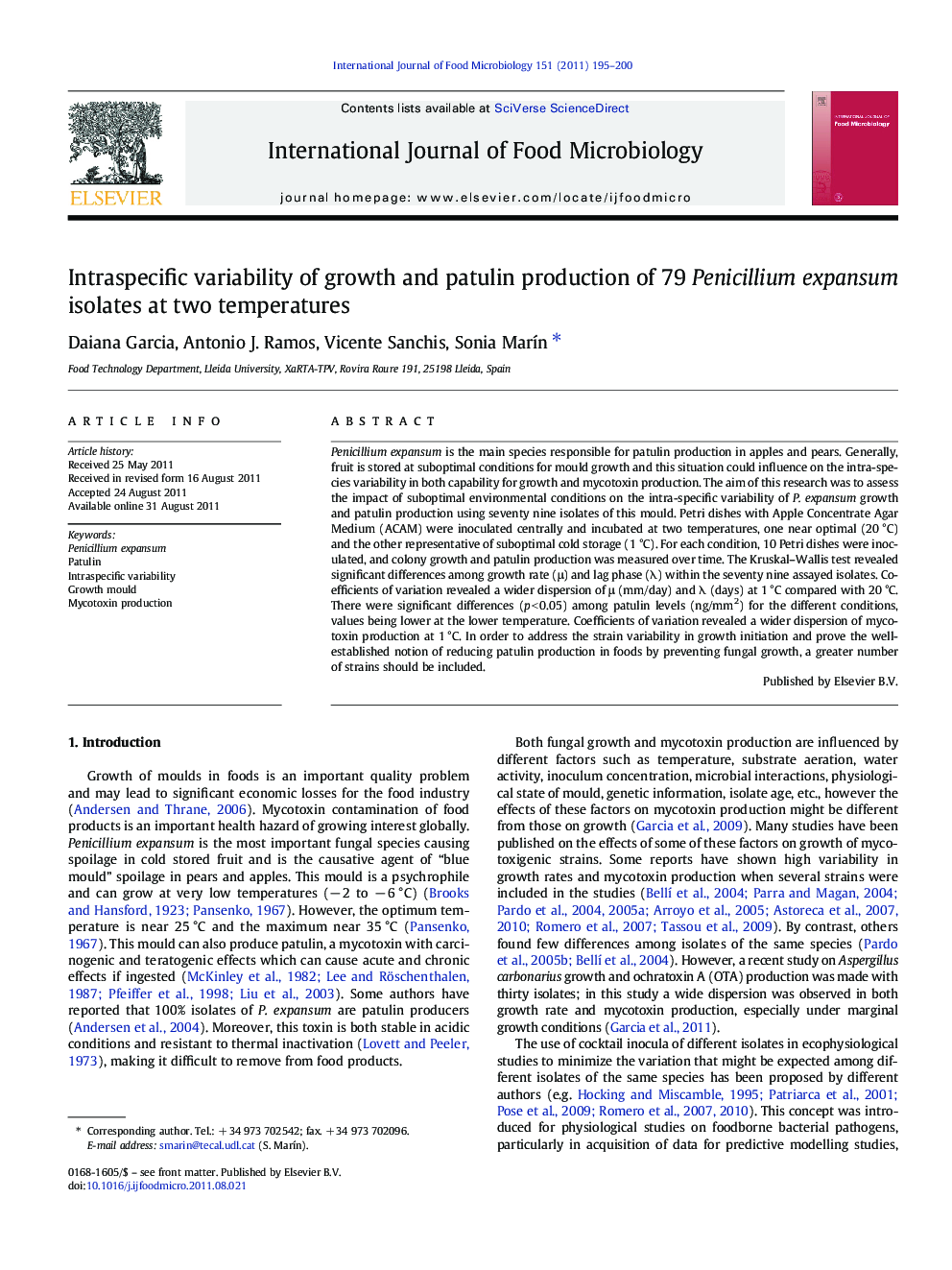| Article ID | Journal | Published Year | Pages | File Type |
|---|---|---|---|---|
| 4367387 | International Journal of Food Microbiology | 2011 | 6 Pages |
Penicillium expansum is the main species responsible for patulin production in apples and pears. Generally, fruit is stored at suboptimal conditions for mould growth and this situation could influence on the intra-species variability in both capability for growth and mycotoxin production. The aim of this research was to assess the impact of suboptimal environmental conditions on the intra-specific variability of P. expansum growth and patulin production using seventy nine isolates of this mould. Petri dishes with Apple Concentrate Agar Medium (ACAM) were inoculated centrally and incubated at two temperatures, one near optimal (20 °C) and the other representative of suboptimal cold storage (1 °C). For each condition, 10 Petri dishes were inoculated, and colony growth and patulin production was measured over time. The Kruskal–Wallis test revealed significant differences among growth rate (μ) and lag phase (λ) within the seventy nine assayed isolates. Coefficients of variation revealed a wider dispersion of μ (mm/day) and λ (days) at 1 °C compared with 20 °C. There were significant differences (p < 0.05) among patulin levels (ng/mm2) for the different conditions, values being lower at the lower temperature. Coefficients of variation revealed a wider dispersion of mycotoxin production at 1 °C. In order to address the strain variability in growth initiation and prove the well-established notion of reducing patulin production in foods by preventing fungal growth, a greater number of strains should be included.
► Effect of marginal conditions on intraspecific variability on growth of Penicillium expansum. ► Effect of marginal conditions on patulin production by this mould. ► Ecophysiology of P. expansum and intraspecific variability among 79 isolates.
